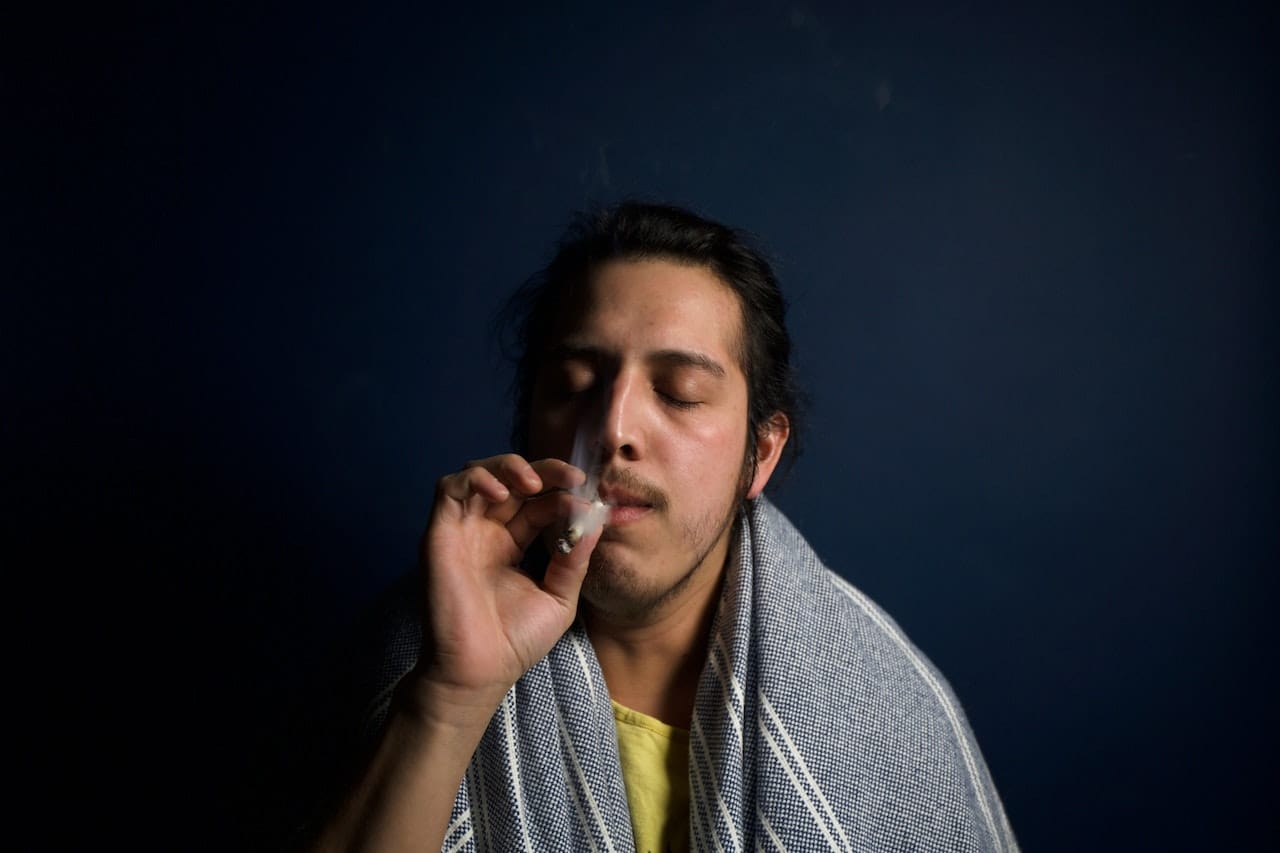Alcohol can pose a range of risks to individuals’ health, particularly when consumed on a regular or excessive basis.
Even greater risks are present when it comes to teenagers and children consuming alcohol.
Understanding the health risks associated with underage drinking is essential for preventing younger people from coming to harm and helping them learn how to consume alcohol responsibly or how to avoid it altogether.

When alcohol is consumed, individuals experience a temporary state of inebriation.
This tends to mean poorer coordination, a greater likelihood to trip and/or fall, and a general tendency for clumsiness.
Young people tend to be at greater risk of reaching this state due to a number of factors such as a lower alcohol tolerance resulting from limited experience and higher intoxication levels from lower blood-alcohol concentrations.
This means that young people will be at a greater risk of slipping, tripping or stumbling, which combines with the reality that underage drinkers will likely be consuming alcohol outside or in secret to increase the chance of serious injury.
Research suggests that younger drinkers are at greater risk of car-related accidents after drinking, [1] with young drivers (16-24) tending to have lower blood-alcohol concentrations, demonstrating a lower tolerance and greater injury risk after drinking.
Alcohol’s primary and most well-known effect is that it provides a temporary high associated with boosted happiness, greater confidence, and a sensation of invincibility.
What follows, however, can be a steep drop in all of these areas.
As a depressant, alcohol can intensify negative thoughts and feelings with continued use, creating mental health conditions such as depression or anxiety, and emphasising those which already exist.
Young people who are already having to contend with the mental and emotional trials of puberty and adolescence can find that drinking on a regular basis enhances the imbalances they feel in mood and worldview.
Furthermore, the desire to remedy these low moods can push young people who may not have alternative support methods to use alcohol as an escape.
This fuels a cycle of heavy alcohol consumption which only worsens mental state in the long term.

The development of the brain is something often associated with early childhood, but research demonstrates that the processes responsible for the growth and maturity of the brain continue into adolescence. [2]
The same studies show that excessive drinking can tamper with these developmental processes.
As a result, underage drinkers can find themselves experiencing stunted brain development, which in turn can cause a wide range of effects.
Young people who drink can, for example, experience greater challenges with their education, which has a knock-on effect for their employment prospects and long-term quality of life.
These factors can also contribute to poorer long-term health.
The ways in which alcohol can impact decision-making and risk assessment can affect the ways in which young people perceive and engage with sex.
Hormones can influence their behaviour, but their ability to consider risks will be reduced by alcohol.
Underage drinking can increase a teenager’s chances of contracting a sexually transmitted disease, with the inhibition brought about via alcohol limiting their ability to perceive and mitigate risk.
The same can be applied to the risk of underage pregnancy which can have considerable health impacts on younger people.

Consuming alcohol on a regular basis can put individuals at considerable risk of developing a dependency on it.
The body’s gradual reliance on the substance – as well as the brain’s growing affinity for it – can develop quickly and without forewarning.
Young people are equally at risk of developing an addiction, and the health risks associated with alcohol dependency are very severe.
They include:
Of course, alcoholism can also have an indirect effect on underage drinkers’ health.
The obsession that develops for the substance can distract from taking care of basic health needs, resulting in poorer hygiene, weight changes and more frequent illness.
When considering the health risks for underage drinkers, it’s important to also consider the risks that are posed to those around them.
Whether a young person is drinking with others or is exposed to others after becoming drunk, harm can arise.
Research has found that this kind of harm can manifest in a number of ways. [3]
Primarily, injuries are caused to others directly via alcohol-related car accidents, abuse, or assault.
However, the potential health risks aren’t limited to those who live with the underage drinker.
Classmates and strangers can be subject to incidents too.

Much like with other substances or medications, consuming too much alcohol too quickly can cause incredible damage to the body.
The inexperience of underage drinkers can put them at particular risk of alcohol poisoning.
The warning signs of alcohol poisoning are varied, but it’s imperative that they are spotted as soon as possible.
They include:
Alcohol poisoning requires rapid professional care.
Those who experience it are at risk of heart or liver disease/failure among other dangers.
The body’s inability to process so much alcohol can cause it to fail in key areas, ultimately threatening long-term health.

It’s imperative to understand the risks that underage drinkers face due to the reality that so many teenagers and young people will consume alcohol in their lives.
Statistics show that underage drinking alcohol at some point is to be expected for young people in the UK.
More specifically, studies show that: [4]
These statistics demonstrate a clear need to identify and help underage drinkers acknowledge the potential harm that arises from heavy alcohol consumption.
The risks can clearly affect anyone, so it’s important that the dangers of underage drinking, as well as the ways in which such risks can be mitigated, are widely understood and heeded.

The health risks associated with underage drinking can cause both short-term injury and long-term health conditions, so it’s normal for those around young people to seek ways in which these risks can be reduced.
For parents, teachers, and friends of underage drinkers, there are several primary methods that can be taken to help them understand and avoid the health problems posed by alcohol.
Underage drinkers are most likely to consume alcohol to a dangerous degree if they are unaware of its true nature.
They might know only of what their friends and classmates have told them about it, and this information can either be lacking or inaccurate.
The greatest resource for preventing harm, therefore, can be a simple conversation with a young person about what alcohol is, how it affects the body, and how easily it can produce negative effects.
These discussions can cover the health risks outlined above as well as address the positive ways in which alcohol can make an underage drinker feel.
It’s important to address what the appeal of alcohol is in order to contextualise its dangers.
Because of the legal drinking age in the UK, [5] underage drinkers will almost always be consuming alcohol in an unregulated environment.
As a result, reducing health risks can be achieved by identifying and communicating the principles of safer drinking.
Underage drinkers are likely to be new to the experience of consuming alcohol, and this means they are more likely to be unaware of how much of it they can tolerate.
This lack of foresight as to their tolerance of alcohol is what puts them at risk of harm.
Helping a young person recognise their limits when it comes to the quantities of alcohol they should consume can go a long way in helping prevent harm.
Or, if a negative experience has already occurred, it can help them prevent it occurring again.
This also goes for the frequency of drinking.
Protecting an underage drinker from harm can also involve helping them recognise how often they are consuming alcohol and when they ought to combat factors such as peer pressure.

When underage drinking with friends, young people can protect themselves by identifying the signs that they need to stop.
While they may lose track of what they have drank, learning the signs of having had too much can be key to preventing harm.
There are a number of obvious signs that underage drinkers can be made aware of to help them prevent alcohol poisoning or any of the other harms outlined above.
These include:
Underage drinkers can also be educated in the ways of preventing harm if they are taught to look out for these signs in others.
This can help them ensure the safety of their friends.
As mentioned above, underage drinkers can help each other remain safe when drinking alcohol.
While it may seem obvious to be watchful of peers coming to harm, young people may have never had responsibility for others before.
As a result, teaching underage drinkers the importance of looking after one another – as well as the signs of over-intoxication listed above – can ensure protection from harm for not just a single young person but an entire group.

As one of the key ways in which alcohol can cause harm, addiction is something that can affect anyone.
Underage drinkers can succumb to the physical and mental traps of dependency, and helping them identify when alcohol is beginning to take over is key.
Having such a conversation is vital because it can be so difficult for an individual to recognise when they are becoming reliant on a substance.
This applies to both young people and adults.
Because of this, it’s additionally important to look out for the signs of dependency in order to know when to guide a young person back to sobriety.
These can be difficult to spot, but some of the tell-tale signs of alcohol use disorders include:
Spotting a developing addiction early is the best way to prevent it from becoming a life-altering condition.
The sooner an underage drinker is made aware that they have a problem and are educated about the principles of safer drinking, the better.

Underage drinking can pose a significant threat to the health and quality of life of young people, whatever their status or background.
Likewise, alcohol addiction is a disease that should be addressed promptly everywhere it is found, with the right help for each and every victim.
Every addiction support service we recommend is fully vetted by the Care Quality Commission (CQC) [6] in England and Wales, or the Care Inspectorate (CI) [7] in Scotland
To get the support you need from a drug and alcohol rehab, or to help a loved one find their way to sobriety again, call our experts today for free on 0800 140 4690
[1] https://www.ncbi.nlm.nih.gov/pmc/articles/PMC6876515/
[2] https://www.ncbi.nlm.nih.gov/books/NBK37591/